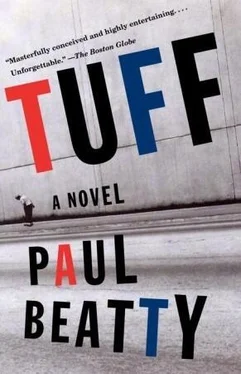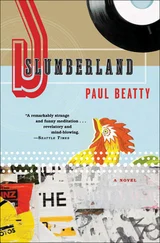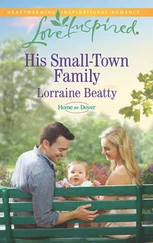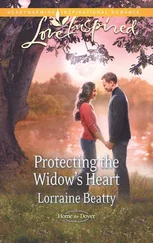Yolanda ran her hands through Winston’s greasy hair and kissed him on the cheek. “You staying up?” Winston nodded. “Leave me some money on the dresser for the movies, okay?”
“Just don’t read Jordy that Pippi Longstocking — turn the boy into a white-girl lover.” Yolanda scratched the back of her head. “I can trust you with him tomorrow?”
“Of course.”
“No drinking, no reefer. Jordy is your son, not some nigger you know from your program.”
“It only happened once, go to sleep. One damn tattoo.”
As she turned to leave, Winston grabbed her by the sash, reeled her in like a yo-yo, and puckered up for a good-night kiss. Yolanda obliged. Winston’s lips mole-hopped from Yolanda’s mouth to her breasts with soggy pecks. Flicking a crusty nipple with the tip of his tongue, he covered the spigot with his mouth and took a long pull. A streamlet of milk coated his tongue. Yolanda moaned in soreness and pleasure. Winston sat back, a globule of milk pooled in the corner of his mouth. “You had arroz y abichuela con pulpo from Dalia’s for dinner, didn’t you?” Yolanda shook her head in disbelief and boxed his ear with a solid smack. Winston raised his arms, basking in self-adoration. “I know my breast milk. I should be on TV. I could suck women’s titties and say what they ate for breakfast. Now that would be a good-ass job. ‘Scrambled eggs with cheese and onions, blueberry pancakes, lightly buttered.’ ”
“Be careful with him tomorrow.”
“One tattoo.”
Yawning, Yolanda disappeared into the darkness of the hallway. “Good night, Tuffy.”
“Don’t be dreaming about Giorgio Johnson.”
Winston adjusted Jordy on his pelvis and pointed the remote control at the dark television set. The screen lit up with a satisfying instantaneous pop. A frail-looking white boy was playing catch with an offscreen partner. The camera zoomed in for a close-up. Two features dominated the boy’s sullen face: a set of knobby cheekbones and a pair of fly-wing-thin varicose eyelids. His shriveled head was covered with a baseball cap five sizes too big. The camera zoomed out and someone lobbed the kid a baseball, which, using two hands, he clumsily caught in the palm of his brand-new mitt. After tossing the ball back, the boy turned to the camera to make his plea. “Hello, my name is Kenny Mendelsson. I’m ten years old, but I have the brittle hips of an eighty-seven-year-old woman and the hairline of a chemotherapy patient.”
“You got a sense of humor too,” Winston said, turning to Jordy. “That nigger got — what’s that disease called? Geezeritis or some shit.” Winston gingerly lifted each of Jordy’s limbs, checking behind the joints, in the concave pits, for skin blemishes or irritations that might be a sign of some such congenital malady. “I feel you, G,” Winston said to the television. “Believe me, I know what it’s like to get old before your time.” He ran his hand over his son’s back, reading the ridges and fatty folds in his soft skin like a familiar braille. Winston stopped at the right clavicle, where the lizard-green block letters embossed on Jordy’s Kahlua-brown skin read, DA’ BOMB. He sighed. Da’ Bomb. Man, nobody don’t even say ‘Da’ Bomb’ no more . Hopefully, it’ll fade as he gets older. And anyway, these light-skinned babies get darker when they get to be about five or so.
The next public-service announcement was for the Big Brothers program. A bald-headed black actor Winston was familiar with from some bit parts in a long-canceled television show walked down a tenement row in measured, authoritative strides. Speaking in a dinner-theater baritone, the actor strode up to a young black boy in a striped polo shirt. He clamped his hands on the boy’s shoulders. “Providing guidance in an environment bereft of direction is the moral mandate, nay, the incumbent duty of African-American men. Isn’t that right, Clarence?” Clarence looked up at the man’s chin and smiled. “Yes, sir!”
“Show them what I taught you.”
“Now?”
“Yes, now.”
“Once upon a midnight dreary,” Young Clarence began reciting an extremely abridged version of Poe’s “The Raven,” doing a laudable job with just the slightest hesitation at the word “surcease,” and delivering the last lines with the appropriate morbid panache: “And my soul from out that shadow that lies / floating on the floor, / Shall be lifted — nevermore!” Clarence took a deep bow and the actor, his eyes welled with tears, looked into the camera and said, “Isn’t he the little Eliza Doolittle? Make a black boy’s dreams reality, call now.” Winston concentrated on memorizing the number sailing across the bottom of the screen.
Serenaded by the canonical poesy, Jordy had fallen asleep. Winston pressed his ear to his son’s heaving chest and listened to his heartbeat. “You know, little nigger, you was almost fatherless today? A hot second away from growing up to be one of those hard-to-handle motherfuckers. Having to listen to your mother whine, ‘Oh, ever since your daddy died you’ve been impossible.’ Yeah, I saved you from much grief. You’d be crying at night, cursing me because I left you. But I ain’t going nowhere, dog. I got a plan to get my shit together. Put all my caca in one big pile.”
Lifting his right pantleg, Winston scratched the surface of his tattoo: a cherry-red heart, ventricles and all, looking as if it could really pump blood, sitting atop a flaming Grecian torch, coiled concertina wire binding the disparate items together. The tattoo sat about an inch above his ankle and just below the tan line created by cotton crew socks — next to his palms and the bottoms of his feet, the lightest places on his body. Above the heart, in an elegantly smooth cursive, flowing like a solitary ribbon trailing a Red Square gymnast on May Day, was the epigram: BRENDA — I KNOW YOU DIDN’T LEAVE ME ON PURPOSE. I AIN’T MAD AT YOU. Winston told the tattoo artist that he wanted the words legible. “You know them notes in the old black-and-white movies? The star never opens the note and starts squinting, and moving the paper every-which-away, going, ‘What the fuck does this say?’ ”
Winston pressed gently on the borders of his handiwork, as if the skin were still reddened and tender. “What you think about an uncle, Jordy? Get a Big Brother who’ll teach me how to spell, so I can be a movie critic. No, wait. That’s out. You never see no black movie critics. Matter of fact, you never see niggers talk about anything that don’t involve other niggers — well, there’s that fag weatherman on Channel 7. ‘Scattered clouds and drizzles through early morning, oh joy.’ But that’s the move though. Get a designated nigger in my life. An educated motherfucker who’ll provide me with some focus and guidance and shit. Channel 7 will have a real nigger doing the weather. ‘Yo, it’s brick out there today. Cold as hell. You niggers with security jobs dress warm or sneak in the lady. Better yet, quit.’ And Jordy, whatever I learn from my Big Brother I’m going to pass down to your ass. Boy, your father going to be one of those pipe-smoking, Wall Street Journal — reading motherfuckers, because I’m tired of being one of these bummy Raisin in the Sun niggers.”
The clicks and buzzes of the lottery machine conveyed an almost telluric importance as it hiccuped the pastel-colored tickets into the operator’s hand one by one. It was as if its grinding sounds somehow helped to keep the world spinning on its axis, or least the neighborhood from collapsing into total ruin. “Okay, 2-2-1 dollar box, 8-4-7 dollar straight, 3-7-3-1 both ways a dollar.” The operator dutifully punched in Winston’s numbers. “5-2-2-4 dollar straight, fifty-cent box.” Yolanda knocked the operator’s hand away from the panel. “One second, Denesh. Winston, where did you get these numbers from?”
Читать дальше












